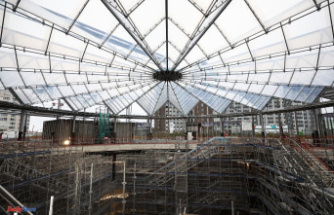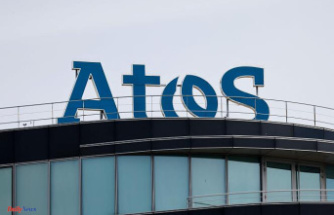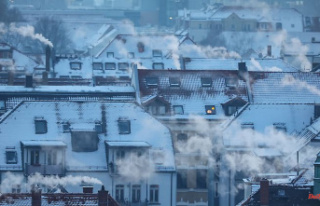The third largest industrial sector in Germany is sounding the alarm. Chemical companies are plagued by high costs on several fronts. Many companies are considering moving at least part of their production abroad. Not all jobs will be preserved. The federal government urgently needs to take countermeasures.
After the energy crisis of 2022, the chemical industry is looking to the coming year with concern. "The situation is dramatic," warned the President of the Chemical Industry Association (VCI), Markus Steilemann. "Our medium-sized companies in particular are fighting for their future." The high energy costs and price increases for raw materials and preliminary products continued to have a severe impact on Germany's third-largest branch of industry after the automotive industry and mechanical engineering. According to a current member survey by the association, every fourth company is already making losses. The association expressed sharp criticism of the federal government.
The chemical industry does not expect the situation to improve in 2023. "The signs for the coming year are extremely bad," said Steilemann, who is also CEO of the plastics group Covestro. The VCI therefore expects a further strong decline in production in the chemical-pharmaceutical industry. "This will certainly also have an impact on the number of employees," said Steilemann. Many companies are already planning short-time work. Industry sales are also likely to fall in 2023, but due to the high level of uncertainty, the association did not make a specific forecast.
Steilemann called for quick and unbureaucratic help from politicians. Improvements are needed on the electricity and gas price brakes because it is to be feared that these will not reach the companies that need them. "The hurdles for our companies to take advantage of the help are brutal," he said, referring to the planned bonus and dividend caps. "The federal government has failed to ensure that the energy price brakes succeed at EU level." In doing so, you are accepting an "industrial death", criticized Steilemann. "We will see migration, so the federal government must do everything possible to work on the framework."
According to the VCI, 40 percent of companies are already reducing production to avoid major losses and save energy. Almost every fourth company relocates parts of the production abroad, especially to Asia and North America. It is to be feared that, in the future, essential parts of the basic chemical industry in Germany will no longer be available and these chemicals will have to be imported from abroad.
Because the chemical industry is producing with the handbrake on, there are already supply bottlenecks for pigments, hydrochloric acid or iron chloride, for example. The very energy-intensive production of ammonia alone has collapsed by 75 percent. Steilemann looks to the more distant future with a little more hope. "From 2024, the situation could perhaps ease up again if there is sufficient capacity for liquefied natural gas." In addition, huge amounts of electricity from renewable energies are needed at affordable prices.
This year, the VCI now expects production to fall by a total of six (previously: 5.5) percent. Chemical production excluding pharmaceuticals is now likely to fall by 10 percent instead of 8.5 percent. Production last slumped in a similarly sharp manner during the course of the global economic crisis in 2009. However, since the industry was able to raise prices sharply by probably 22 percent this year, sales are expected to grow by 17.5 percent to 266.5 billion euros. Price-adjusted, however, it would be five percent below the level of the previous year.












